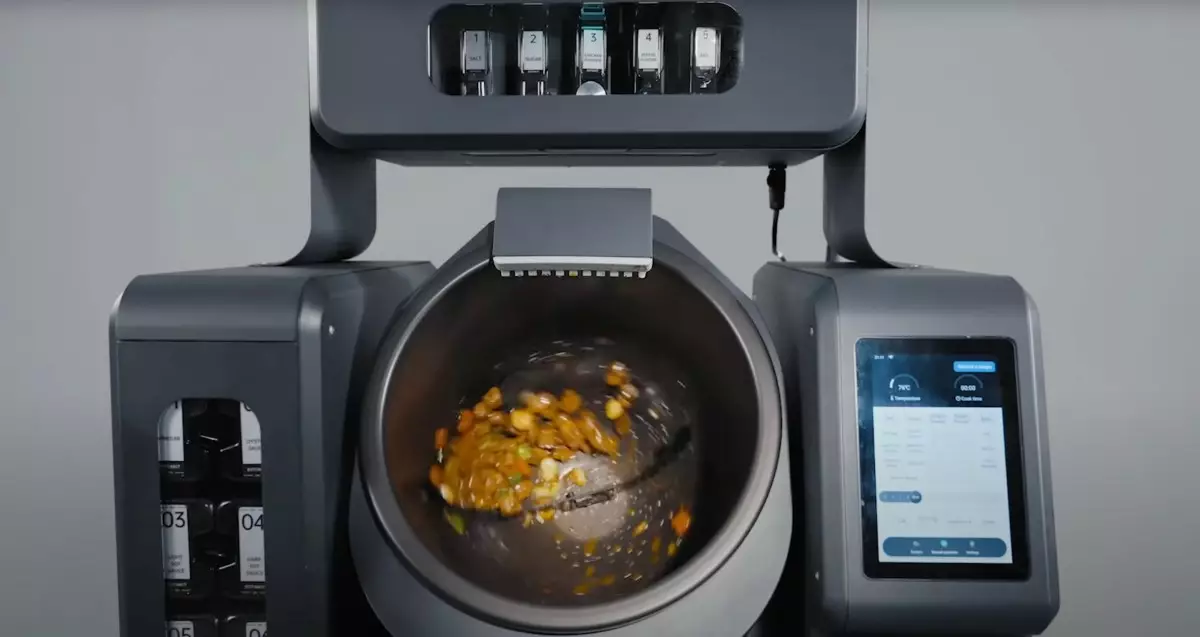Since the onset of the COVID-19 pandemic, the global food service industry has been confronted with unprecedented labor shortages. Restaurants across various regions have struggled to maintain operational efficiency amidst increasing demand and dwindling workforce numbers. In response to this crisis, innovative solutions have emerged, particularly in the form of automation technologies designed to minimize reliance on human labor while ensuring consistency and quality in food preparation.
Among the notable players in this field is Miso, whose robotic arm captures the eye with its ability to flip burgers—a striking representation of culinary automation. However, not all robotic solutions require such flamboyance. Botinkit, a Shenzhen-based startup, has developed its own kitchen automation system known as the Omni. Unlike traditional robotic counterparts, the Omni resembles a standard kitchen appliance equipped with touchscreen functionality, making it accessible and friendly for kitchen staff. This design choice allows the platform to easily integrate into existing kitchen environments, offering both operational efficiency and simplicity.
The Omni system is strategically engineered to handle the intricate tasks typical of an industrial kitchen. Capable of cooking, stir-frying, and stewing, it significantly mitigates the need for constant human oversight, thereby enabling restaurants to maintain higher output with fewer staff. Botinkit’s CEO, Shirley Chen, has emphasized the necessity of redefining kitchen dynamics, positing that traditional cooking methods led to variability that could compromise food quality. By leveraging automated technology, restaurants can achieve uniformity in their culinary offerings, thus addressing a primary concern of both operators and consumers.
Shirley Chen’s background as a strategist at a prominent accounting firm combined with her experience as a restaurant owner has positioned her uniquely within the industry. This dual perspective has informed Botinkit’s approach to tackling restaurant challenges head-on. The recent $21 million in Series A funding, an extension of earlier investments, signifies strong confidence from investors in the company’s potential. This influx of capital aims not only to bolster Botinkit’s presence in Asian markets, where it is currently strongest, but also to facilitate its expansion into Europe and the United States—regions characterized by their own labor challenges.
As the restaurant industry continues to adapt to the new reality post-pandemic, the integration of kitchen automation is likely to become a staple rather than an anomaly. The proliferation of solutions like the Omni system could redefine the labor landscape, where human roles may shift from traditional cooking tasks to more supervisory and creative positions. By embracing these advancements, restaurants may not only alleviate labor woes but also enhance their ability to deliver consistent, high-quality meals to customers. The future of dining is on the cusp of transformation, driven by innovation and necessity.

